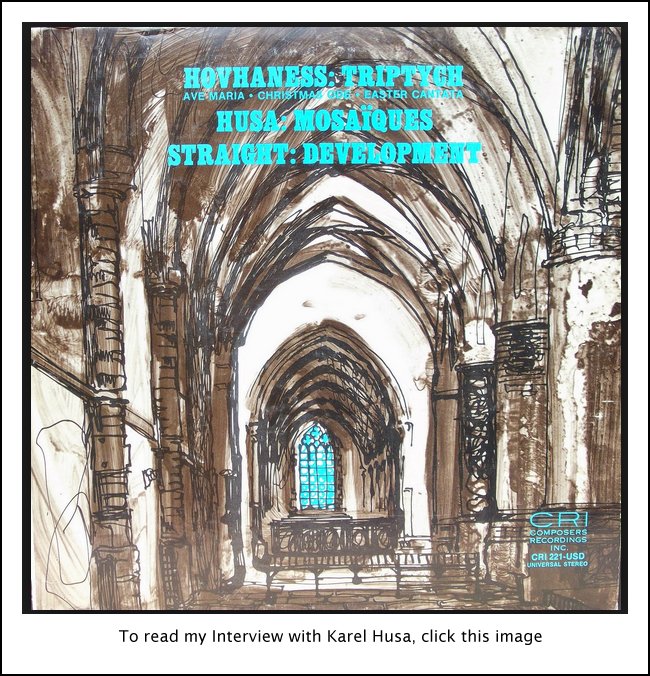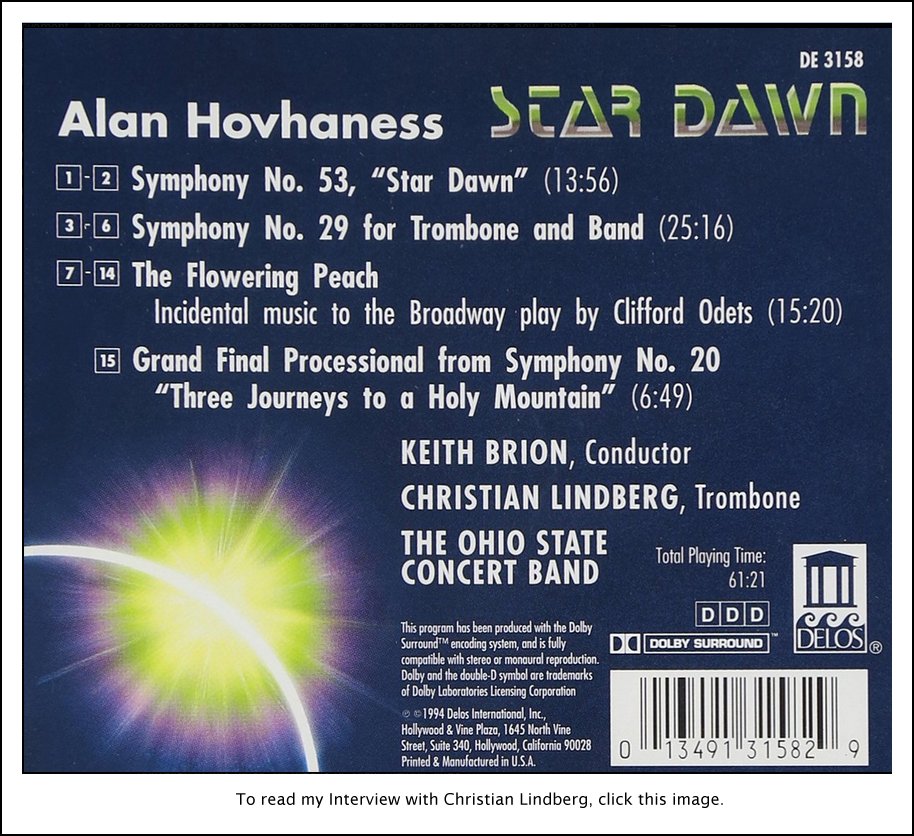Alan Hovhaness Interview (original) (raw)
Alan Hovhaness
The Composer in Conversation with Bruce Duffie
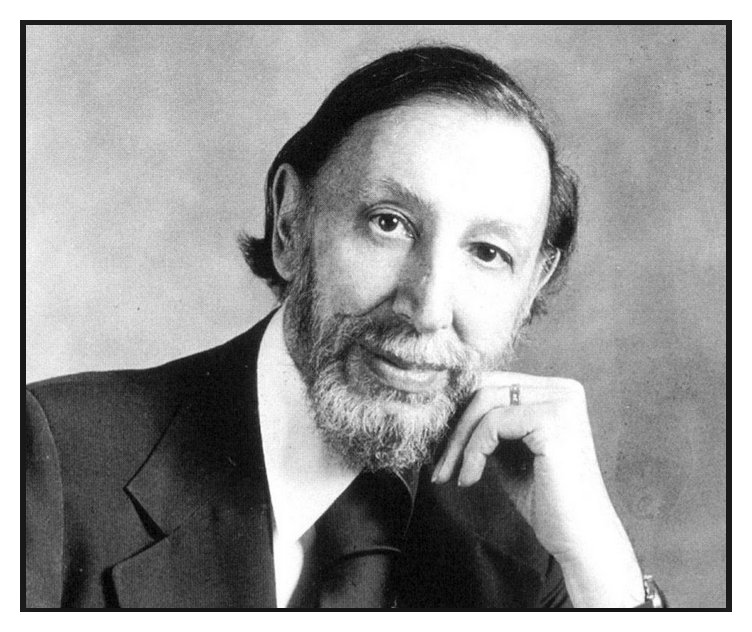
In a career which is now, in 2005, thirty years in length, I’ve had the wonderful opportunity to meet and talk with many of the musicians who are responsible for creating and presenting the greatest forms of music. [For a full list, see this page on my personal website.] Some are very well known to both the specialist and the general public. Others are major figures within a select circle of aficionados, and some, though important to the art, remain almost completely unknown outside their own community of friends and students. Alan Hovhaness is one of the most special, and it’s comforting to be able to say that his name and music are gaining more and more friends all the time.
He was always known among anyone who ever heard his music, for its experience will resonate within the heart and mind. A couple of major works, such as Mysterious Mountain and the startlingly wonderful And God Created Great Whales were presented in major places early on, and achieved recordings that never fail to surprise and delight —and win new converts to his very personal sound world. These days, performances and recordings are happening more and more, so new generations are able to enter and fall under his spell.
Rather than place an extended biography here, visit the main website on the internet devoted to Hovhanessfor details about his life and the many discs which have been made. Let me just say that during my time on the air, it has always been a particular delight to share his music with listeners, and the playing of his music usually provokes calls of inquiry about this fascinating man. I am now pleased to be able to present this conversation as a transcript on this webpage.
In the summer of 1985, I made a trip to Seattle for their production of Wagner’s Ring before heading on to Alaska and a wonderful cruise through the ‘Inside Passage’. Prior to this visit, I had made contact with Hovhaness and had arranged to meet him at his home for a conversation. He and his wife greeted me, and shared both their lovely abode and the magnificent view of the mountains. While we all enjoyed some delicious apple juice, we settled in to start our chat. The composer was looking over a list of his recordings, so we began there . . . . .
Bruce Duffie: Are you pleased that so many of your works have been recorded?
Alan Hovhaness: Yes, I am. I wish that some of the good records hadn’t gone out of print and disappeared so long ago. But I’m always happy about recordings, because they can reach people which concerts can’t. I wish that my new symphonies were recorded because they’ve had great enthusiasm from audiences, but nobody knows unless it’s the town where the conductor happens to like my music. [Chuckles]
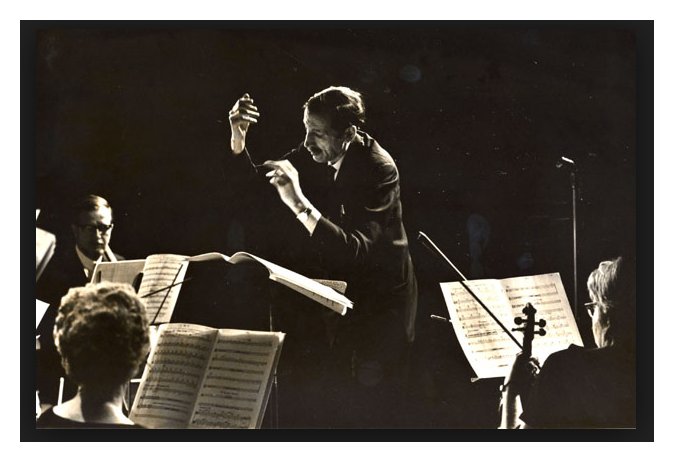 BD: Are there enough towns around the world where conductors like your music?
BD: Are there enough towns around the world where conductors like your music?
AH: Well, I don’t keep track of it. Of course, a composer always has frustration about some conductors. [Laughter]
BD: I was going to ask you about that. Have you heard many live performances of your music?
AH: Many of them. Now I just try to get them to send me a tape, but I try to go. If it’s around here, I try to go. The Mount St. Helens Symphony [Symphony no. 50, Op. 360 (1982)] had a wonderful performance in San José, with George Cleve. He did a wonderful job. Very dramatic. It was the best success I’ve had for many, many years.
BD: I’m glad you’re getting fine performances. Are you ever frustrated by the performer?
AH: Sometimes I am, but it depends. Sometimes they take a very different tempo than I had imagined, and then sometimes I’ve had trouble myself marking tempos correctly. If I conduct it myself, and then mark it, that_’_s the way I should do it. But generally I’ve had good luck. I’ve had some wonderful conductors, so I appreciate that.
BD: Have you done much conducting of your work?
AH: Yes, I have done quite a lot. I like to do first performances.
BD: Are you the ideal interpreter of your work?
AH: Probably not. I have a better ear to hear mistakes that might be in the parts, so I like to be there at first and see that everything is correct. After that, other people can get the fancy interpretations. I’m very straightforward. I don’t interpret the music. I just conduct it, and give it the drive, or whatever it needs. But some other people can do other things that I can’t do.
BD: Do conductors find things in your scores that you didn’t even know were there?
AH: I don’t know about that. It seems to me that some conductors nowadays are not very well-trained musicians. I know a lot more than they know about what’s in the score. [Laughter] When some conductor says, “Oh, I want to look at this score,” and then rejects it right away, I know that they haven’t the slightest idea what’s in that score. Very few people can judge a full orchestral score by sight reading it.
BD: Even sitting down at the piano, you don’t get the colors and textures.
AH: That’s true, you don’t. So any conductor who says that he doesn’t need to have a tape, he’s a fake, a fraud.
BD: As you approach your 75th birthday, are you pleased with some of the earlier works that are in the catalog?
AH: Oh, I’m very happy about them, especially the symphonies, and many works which I’m glad have survived, somehow. [Laughter]
BD: I understand you destroyed some very early works. Is that true?
AH: Yes, I destroyed a great deal. I just didn’t have room for them. I was always growing, and I always wrote so much, and then I finally came to a point where I found myself. I saw Sibelius when I was a very young man, he said, “In ten years from now you’ll find yourself.” So when I found myself, I wanted to destroy everything else. I’m glad a few things were published, and so those I didn’t destroy. But I destroyed too many pieces. Since I was living in a tiny room, I didn’t have the space for many things. I just didn’t want to see anything that I didn’t feel was very good.
BD: Did any of those old ideas that you scrapped show up in new things?
AH: Some of them did, later, yes. A theme or two, and... [Chuckles].
* * * * *
BD: How much can the composer expect from the public?
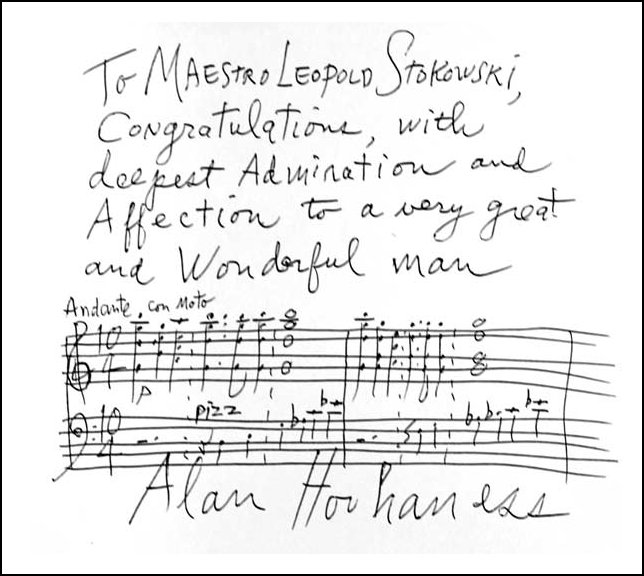 AH: I don’t expect anything. I’m happily surprised that I’m still alive and appreciated as much as I am. But the public doesn’t bother me so much. The narrowness of very academic and so-called intellectual musicians is much more an enemy to the composer than the public. If you can reach the public directly, you can find people who understand you. I don’t worry about that. The goal is to reach the public because there’s so much politics in the way. You always have some people who go around trying to make propaganda against a thing, and they never want to give it a chance. My first chance, actually, came through an accident. Leslie Heward, conductor of the BBC in England, happened to see a score that I’d published myself. I printed it myself, at my own expense. [This is the_Exile Symphony,_ now known as Symphony no. 1, Op. 17, conducted in 1939 by Heward, then principal conductor of the BBC Midland Orchestra in England]. He got very much interested, and did my music over there. That was the first performance I had, and very soon after that, Stokowski conducted one of my works — the same work, I think. But then there was a ten-year period where nobody played my music, and I was known as the composer who was never played in Boston. Then I got the idea of starting my own amateur orchestra, which I did, and so I gave concerts every year. Those were very successful. I even made money. I did them for charity during the war, but then we even made extra money, so I had enough to help towards the next concert. I just put it into the next concert. I wasn’t trying to make money for myself, but I was glad to be able to conduct concerts of my music. Then Stokowski came into the picture again when I was living in New York, and he really championed my music.
AH: I don’t expect anything. I’m happily surprised that I’m still alive and appreciated as much as I am. But the public doesn’t bother me so much. The narrowness of very academic and so-called intellectual musicians is much more an enemy to the composer than the public. If you can reach the public directly, you can find people who understand you. I don’t worry about that. The goal is to reach the public because there’s so much politics in the way. You always have some people who go around trying to make propaganda against a thing, and they never want to give it a chance. My first chance, actually, came through an accident. Leslie Heward, conductor of the BBC in England, happened to see a score that I’d published myself. I printed it myself, at my own expense. [This is the_Exile Symphony,_ now known as Symphony no. 1, Op. 17, conducted in 1939 by Heward, then principal conductor of the BBC Midland Orchestra in England]. He got very much interested, and did my music over there. That was the first performance I had, and very soon after that, Stokowski conducted one of my works — the same work, I think. But then there was a ten-year period where nobody played my music, and I was known as the composer who was never played in Boston. Then I got the idea of starting my own amateur orchestra, which I did, and so I gave concerts every year. Those were very successful. I even made money. I did them for charity during the war, but then we even made extra money, so I had enough to help towards the next concert. I just put it into the next concert. I wasn’t trying to make money for myself, but I was glad to be able to conduct concerts of my music. Then Stokowski came into the picture again when I was living in New York, and he really championed my music.
BD: Is the modern composer today, as a rule, just sort of left to his own devices?
AH: I think so, yes. I can’t advise anybody, because it’s a matter of luck if you find a conductor who likes your music. Especially if you aren’t played, who’s going to say that this music is worth playing or not? It may look good on paper, but it may not sound good.
BD: So then we come back to recordings again. They make it more accessible?
AH: That’s true. That’s very valuable. I wish they weren’t so expensive to make because I’d record my own music if I could.
BD: Are you pleased with the recordings that other people make, though?
AH: Yes, oh, yes, I am.
BD: Are there differences between the commercial recordings and live performances of your music?
AH: It’s close enough, as far as I’m concerned, in most cases.
BD: You don’t feel that there’s a spontaneity lacking in the studio?
AH: No, I haven’t noticed that, especially if I’m recording myself. Naturally, you do have some difficulty sometimes. You have problems of key players who don’t show up, or things like that, but if all my men are there, and they’re good sight readers, we’re able to do it fairly fast and it sounds the way I want it to.
* * * * *
BD: When you’re writing, do you write for the public, or for yourself, or for your players? Whom do you have in your mind?
AH: I think I have everybody in mind. I especially have the players in mind, because I want to write as beautifully as possible for every instrument. I love the orchestra. I feel that the orchestra is not understood as well as it could be by many composers. Orchestration is so easy to make too thick and muddy. I want every note to be heard. I love all of the instruments very much and want to do things that are natural for those instruments. I like to go back to the origin of the instrument — where did it come from, what was it related to, even in mythology and ancient times. What’s the soul of that instrument? That’s what I’m interested in.
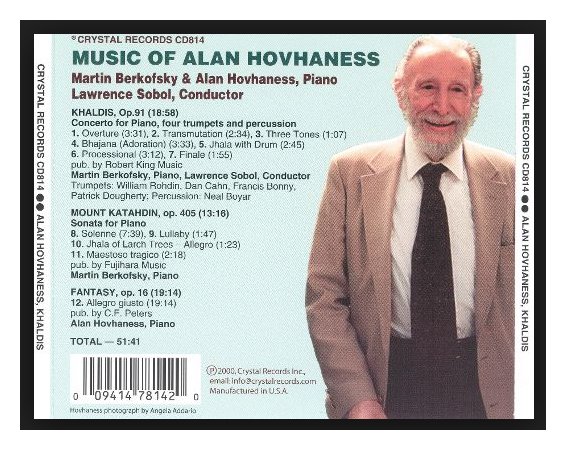 BD: So then the soul of the instrument becomes the soul of your music?
BD: So then the soul of the instrument becomes the soul of your music?
AH: Yes, but of course I write with my own imagination for what I want to do, and I don’t worry about the public. I know that if I feel something very intensely, somebody else will, sooner or later.
BD: Are there enough young composers today?
AH: Oh, I think there are too many, unfortunately for them, because it is very difficult. You have to be able to have the guts to not eat for many days, perhaps. The main thing I tell them is to do something practical. Play an instrument well so you can earn your living that way, because you can’t count on earning your living writing music. It took me halfway through my life before I really could depend on it. I was my own sponsor. I was a pianist and I did every kind of job there was. I was a jazz arranger, and I was a ghost writer for fakes who wanted to have a piece that they’d ‘written,’ but they hadn’t... [laughter] So I wrote in every style. Even when I was in the hospital one time, a priest came to me and asked me to write a wedding march and put his name on it. So I did it because it amused me. I was bored to death.
BD: [Laughs] So there are some Hovhaness pieces that are not even credited as being by Hovhaness?
AH: Oh, of course. They sounded like Mendelssohn, or whatever. Whatever that man wanted, okay, you’ll get it. [Laughter]
BD: Are you still getting real commissions for your own things?
AH: Oh, lots of them, yes. I just finished a 30-minute symphony for full orchestra, for the Bellevue Symphony here [Symphony no. 59, Op. 395 (1985), composed for the Bellevue Philharmonic Orchestra in Bellevue, Washington], and then there are several other symphonies for other orchestras that I’m doing.
BD: When the commissions come in, how specific are they in what they request? Do they just say, “Write a piece,” or do they say, “Write a symphony,” or, “Write a 20-minute symphony”?
AH: Bellevue wanted a 30-minute symphony — a major one — so I gave them that. It’ll be played early next year. Other symphonies want something perhaps 20 minutes.
BD: Does that constrain you to be writing with a stopwatch?
AH: No. I never do, anyway. I have an instinct about timing, so if I have more to say, I save it for another symphony, if it’s got to be a shorter work.
BD: A moment ago I asked about composers. Are there too many performers now?
AH: No, I don’t think so. There are fewer good performers, actually. I think there was a time when there were a great many performers. In a way, there are too many to get along, but a performer stands a better chance [than a composer] to survive. I’m only speaking from a practical standpoint, of course. I am glad to see composers and encourage them, and I do what I can to be helpful, because they need lots of help. They don’t get too much understanding, many times. But there are lots of good ones around here. There are some very good ones.
BD: Young ones or mature ones?
AH: Both. Some are quite mature, and I’d like to see them get along a lot better.
BD: We’ll just have to encourage more performances. How do we get the public to accept more modern music?
AH: That’s the stupidity of conductors and managers, sometimes. In a way, composers got a little far from the reality of life. They got too intellectual. We were rebelling against all emotion for a while — like the John Cage ticket. He was a very good composer when he was young. But then he went and saw Boulez, and he said,“Emotional music is written to show how emotional the composer was when he wrote it, and intellectual music is written to show how intellectual the composer was who wrote it,”and that way he destroys everything. The New York people think they’re gods, and they’re too dictatorial. So it turns back on them after a while, because people are trying to understand, and they don’t. If they don’t get anything out of a piece — if nobody gets anything out of a piece, except another composer who’s writing in the same style — by and by there’s going to be a disaster. People are going to not want to play any new music. For a conductor who doesn’t read music very well, the simplest thing is to avoid all contemporary music, because he thinks they’re all dangerous, and that’s not true.
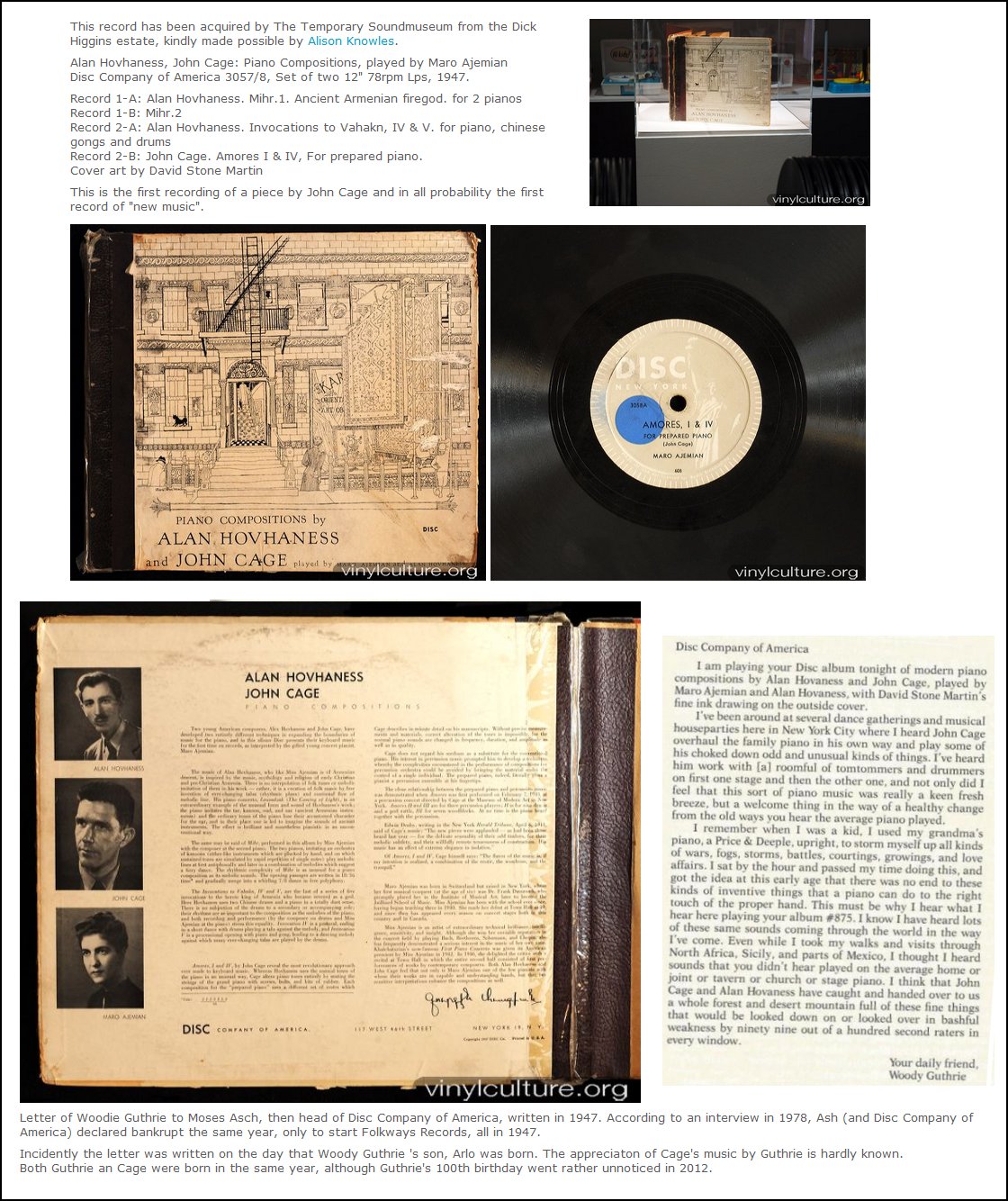
BD: How much should the public understand of a piece the first time? How accessible should it be?
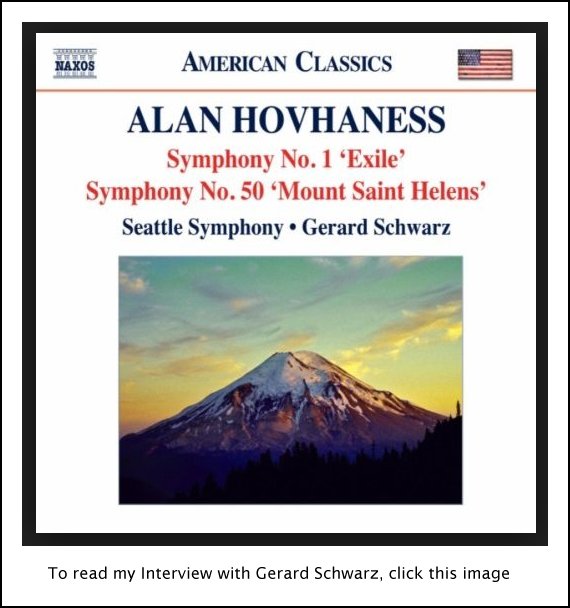 AH: I won’t put any rule to it, but if it’s a really good piece, people can get quite a lot out of it the first time. I’ve had quite a wonderful reaction from the Mount St. Helens Symphony. People were screaming, and standing up, and crying, and all that. Of course this is against the rules because it’s very emotional, but I won’t say I was emotional when I wrote it. I write according to my own rules.
AH: I won’t put any rule to it, but if it’s a really good piece, people can get quite a lot out of it the first time. I’ve had quite a wonderful reaction from the Mount St. Helens Symphony. People were screaming, and standing up, and crying, and all that. Of course this is against the rules because it’s very emotional, but I won’t say I was emotional when I wrote it. I write according to my own rules.
BD: Then you let your music stir the emotion in other people?
AH: Yes.
BD: Is that the real aim of music, to stir emotion?
AH: If it doesn’t stir any emotion, it’s very boring. For instance, there’s no music more intellectual than the Kunst der Fuge of Bach, which I’ve studied all my life. I don’t think most musicians know what’s in that work. They don’t know enough about counterpoint to understand it. But it’s an extraordinary work, and I find it very emotional, too. Not that Bach was trying to be emotional. He didn’t have to try to be emotional. He wrote for God, and that was it.
BD: That’s a pretty good audience.
AH: Yes. [Chuckles]
BD: Many of your works have a religious overtone or a religious significance. Is that something special to you, or is it something you’re trying to bring out?
AH: I guess I can’t help it. I’m religious, in a way. I find good in all religions, so I’m not just trying to sell religion, like an insurance man.
BD: Should you try to sell music like an insurance man?
AH: No, I don’t try to sell it. I have some interest in what Emerson said about that. “If you have something which is good for the world, the world will beat a path to your door.” You don’t have to sell it, and I don’t try to sell it. I know that I’ve missed out on many things because of that, but I don’t think I could sell it anyway. I would probably do more damage if I tried to sell it than if I just shut up.
BD: Is it wrong, though, for others to try and sell your music by repeated recordings or repeated performances?
AH: That’s fine, and I’m willing to do it, if I can, with recordings. I’m glad to do that. If I can get enough money together to make a recording, I’ll do it. But I do that because I want the music to be heard.
BD: Is there any danger that if a piece is heard too often, or in the wrong places, that it might become trivialized?
AH: I don’t think so. If a piece becomes too popular, it may be left unplayed for a while. But I don’t get snobbish about popular music, or pieces that are very popular that everybody loves. I don’t get superior to them, because if they’re a masterpiece they’re a masterpiece, and they’ll come back again. I think Handel’s Messiah, for instance, as well as all of Handel’s work, is some of the greatest music that’s ever been written. I’m a tremendous admirer of Handel. I’m a tremendous admirer of Sibelius, and I’m not like Stravinsky, who just says, “Well, Sibelius wrote Finlandia so he’s no good,” because _Finlandia_’s a damn good piece, too! It’s a popular piece, and it was written to defeat the Russians, and it worked. The ancient Chinese did that, you know. They had gagaku pieces to smite the enemy, and Finlandia was that kind of a piece.
BD: I’m glad you brought up the Chinese because you have seemed to bring East and West together.
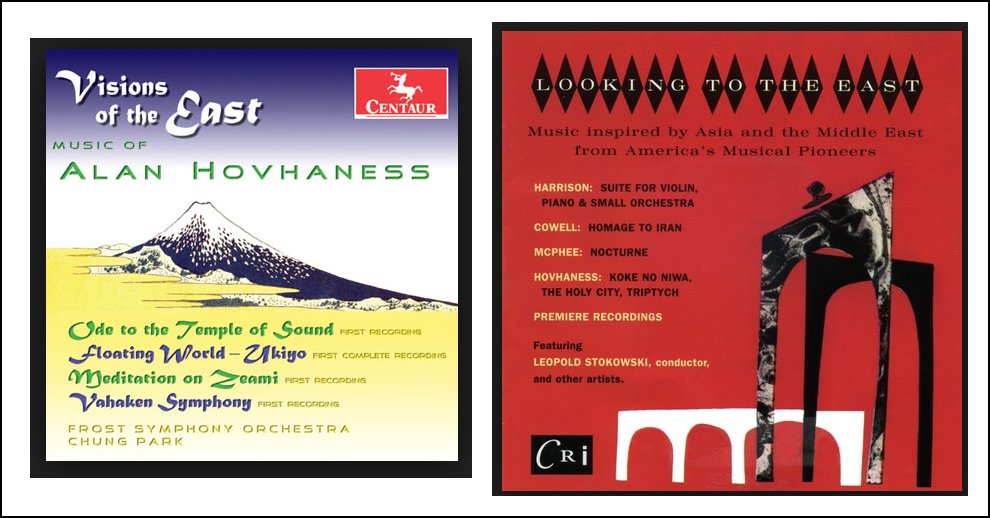
AH: It’s one world, and we’re all human beings. It’s a very small planet, and I think we all discover certain things. We learn things from each other, and lot of things we think we’ve just learned today were actually known a long time ago. The psychology of Freud was known by the Tibetan priests and was in the Book of the Dead of the Tibetans. It says, “Don’t fall in love with your parents. You’ll see many people having sex before you’re born. Be careful, then. You’ll be born into a pigpen if you aren’t careful. But if you have to be born, if you’re a man, don’t fall in love with your mother and hate your father; and if you’re a girl, don’t fall in love with your father and hate your mother.” So Freud was known very well to the Tibetans, and to the ancient Buddhists.
BD: It’s all human nature.
AH: Yes. So these things are the same all over the world, I guess.
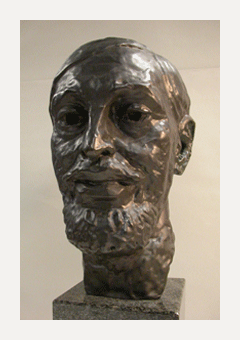 BD: Is human nature changing at all, or is human nature the same as it was thousands of years ago?
BD: Is human nature changing at all, or is human nature the same as it was thousands of years ago?
AH: We have our periods of barbarism and civilization, and I hope civilization will last a little longer. We’re not changing for the better, necessarily. We’re more scientific than we were before. I’m all for space, and exploring space. I love astronomy. That’s one of my favorite subjects.
BD: What about the contemporary music of today? It seems that the younger generation — and even the older generations — are listening only to so-called‘popular’ music, and ‘rock’ music. Does this make a distorted set of values for that segment of society?
AH: We’re too used to artificially increasing the volume of sound without any increasing of any value of the sound and anything behind it. People are getting used to that, and they’re getting deaf, which is unfortunate. It’s not doing anything for their mind. I’m very much interested in troubadour and folk music of real value. Thereare wonderful things that have been done very naturally, but with this kind of sensational exaggeration of just loudness, everything else has to be sensational, so unfortunately the quality gets more and more empty, and that’s dangerous.
BD: Is ‘rock’ music?
AH: Some of the earlier ones were interesting, yes. They were trying to imitate Oriental music, but they didn’t study it enough, and they didn’t really understand it. They were imitating it on the surface. I like to go back to the real roots of the Earth, rather than the commercial imitations and oversimplifications of them. Anyway, there’s very little in music I can stand, but what I do like, I like very much.
BD: Besides Handel, what?
AH: I love Mozart, Schubert, and Haydn, naturally, and all the great composers.
BD: Are there any ‘great’ composers you feel it’s a mistake to give that accolade?
AH: No. If they’ve been called great for a long period of time, they usually have greatness in them. There are some that are favorites of mine, and others that are not favorites of mine, but I don’t say that they aren’t great. That’s a matter of taste and temperament.
BD: Is the taste and temperament of the public always right?
AH: No, I don’t think they’re ever right, but they come near the truth sometimes.
* * * * *
BD: You’ve written some operas, and I want to ask about them. Slonimsky, in the Baker_’_s Dictionary, said that you wrote two operas, two quasi-operas, and one pseudo-opera. What are the distinctions to provoke those different labels?
AH: I wondered about that. [Laughter] Most of my operas are not operas in the sense of either Wagner or Verdi, or the other Italians, or Mozart, or Handel, who was a great opera composer. I like very much the Japanese Noh drama. When I was a kid in school, I wrote operas for the school. One, called Daniel, which we did back in 1925. I wrote it in 1924, or something like that, and then another one called Lotus Blossom [which was performed March 8 and 9, 1929 at Arlington High School in Arlington, Massachusetts]. I had a clever librettist [Edgar Desmond Hegh] who was also in the same school, and we worked together, and then the school produced them.
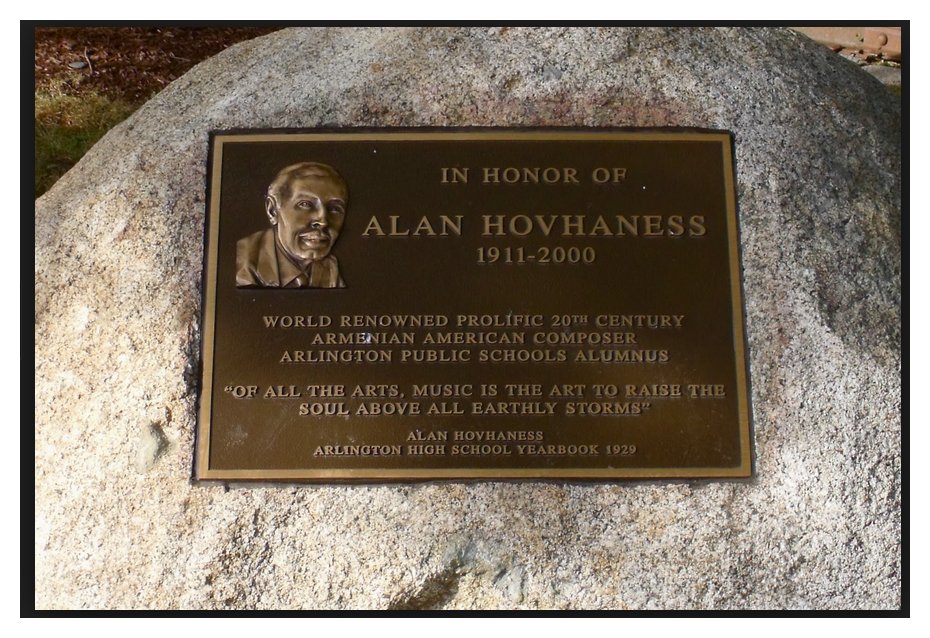
Since then I’ve had very few operatic productions. The large ones are very expensive to do. I have a large one on Shakespeare called Pericles [Op. 283 (1975)]. It’s never been done. I’ve never been able to afford even a set of parts for it. It’s too expensive, and I don’t have time to copy it myself. I’d go blind. [Laughs] That’s for full orchestra and chorus. It’s a big work. But some operas have been done [asks his wife, Hinako Fujihara Hovhaness, “What’s the title of the one that I wrote for you?” She tells him, “_Tale of the Sun Goddess Going into the Stone House_” (Op. 323, written in 1978)]. We did that in California and the chorus wasn’t what I was hoping for. They had a good group of singers there, but somehow they gave me a rather poor chorus. I revised it for another performance, which I conducted, but then I thought my revision was not as good as the original, so I think I’ll go back to the original again, sometime. Another opera, The Burning House [Op. 185 (1959, rev. 1962)], has been done several times. That’s for men’s voices only, men’s chorus and two characters. It ends just going out into the universe, and is treated in a Buddhistic way. I didn’t know the meaning of it. It was all dreamed up, so to speak. I got the libretto from dreams I had, and I didn’t get the interpretation until I was in Japan, when they told me what ‘the burning house’ means. ‘The burning house’ is life, or the body, and actually it works out that way. Then another is Pilate [Op. 196 (1963)]. I liked to go to Switzerland whenever I did anything in Europe, and I finally lived there for a while. Mount Pilatus was named after a legend. I got the legend wrong, but I like the wrong legend better than the right one. [Laughter] According to the wrong legend, he was supposed to have gone all the way up. That means he went to the northern part of Switzerland, which is strange. He went to Mount Pilatus and jumped off, committed suicide. It’s the problem of conscience which I dealt with in that opera. He was a sort of self-torturer about it. You see the crucifixion relived in his mind, and he’s tortured by this black bird on the mountain. There are these beautiful black birds which glide, so I have a black bird. That’s the only woman in that opera. The others are all done by men, and men’s chorus. Another opera, The Leper King [Op. 219 (1968)], which was commissioned, was also an Oriental opera, but that was strange. I didn’t know anything about it, a leper king from Cambodia. He had leprosy, and was assassinated. I had a tape of it, and a friend of mine, Donald Keene, who was a fine translator for Mishima, sent it to Mishima, and Mishima liked it so much he used it in his play, [Raio no Terasu/The Terrace of the Leper King (1969)], which, strangely enough, was written at the same time as I was writing my libretto and music for my Leper King. So we corresponded after that. That was, of course, a little while before his suicide [November 25, 1970]. But it was strange. He used my music in his play, for the climax scene. [Chuckles]
BD: He turned it into incidental music?
AH: Yes. There are others I’ve done which are not conventional operas. Because of the impossibility of interesting opera houses, I sometimes use smaller ensembles that are more easily gotten together in a small setting. _Burning House_is just done with one flute and four percussionists, and voices, so that’s received several performances. The Travelers is another very short one [Op. 215 (1965)]. It needs just three flutes and percussion. It’s hard for me to remember all the different operas I’ve written. Lady of Light [Op. 227 (1969)] may be called a pseudo-opera, perhaps because it’s really between and oratorio and an opera. That’s also based on a Swiss legend which I changed myself.
BD: So when you’re writing something, you don’t try and fit into one pigeonhole or another. You write the way it should be, and then let somebody else try and decide what it is?
AH: Yes, I do, because many things come at a certain style and a certain concept, and I don’t really know what to call it.
BD: Some people claim that opera is dead. Do you feel that is the case?
AH: I hope not. I enjoy it very much, certainly.
BD: Some people say that the opera houses are museums, and that their life span is very limited. You have set these operas in a certain time or in a certain place, with certain stage directions. When they get done 100 years or 200 years from now, is it going to upset you if they’re brought up to date, or modernized, or if the staging is such that people might boo at the performance?
AH: I don’t know. I hope I’m not earthbound in 100 years from now. [Laughter] But it might upset me if I was. I think I’d just avoid the performance. Bernstein used to say that all music — all classical music, symphonies, everything — was a museum, and Lukas Foss said, “Well, I like museums.” [Laughter]
* * * * *
BD: You seem to be enamored with mountains, so let me ask you about another work of yours, Mysterious Mountain [Symphony no. 2, Mysterious Mountain, Op. 132 (1955)].
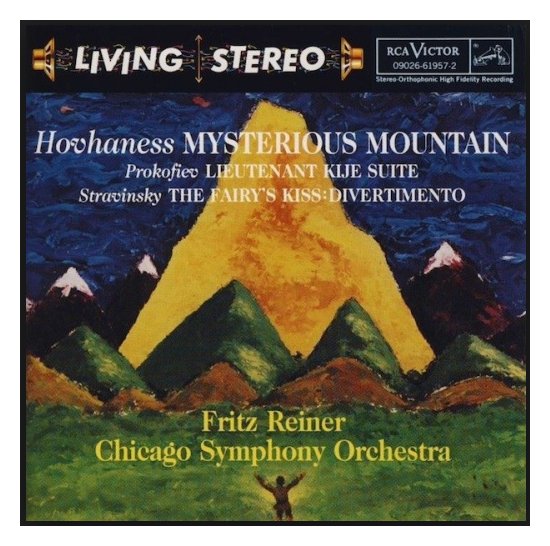 AH: That was written, actually, for Stokowski. He said,“Please give it one of your titles.” I was going to call it Symphony, or Concerto for Orchestra.
AH: That was written, actually, for Stokowski. He said,“Please give it one of your titles.” I was going to call it Symphony, or Concerto for Orchestra.
BD: So the title was almost an afterthought?
AH: It was an afterthought.
BD: Many of the other symphonies have titles. Are they forethoughts or afterthoughts?
AH: Almost always afterthoughts. I compose music without any thought at all. I just compose the music, and I don’t know what it’s going to be, as far as any other connections are concerned.
BD: So when you start a piece, you have no idea what it’s going to be like at the end?
AH: Sometimes I have an idea of the ending, yes. The beginning and the ending, and the middle. One has a kind of vision of the whole thing, very fast, and then you work it out. It may change in all kinds of ways when you’re working. It may write itself.
BD: Are there times when you don’t have any control over it?
AH: No, not really. I guess I don’t, and yet I do. It’s hard to say. If I’m writing in a classical form, like my Third Symphony [Symphony no. 3, Op. 148 (1956)], then I write in sonata form. But in other cases, the form grows from its own ideas. I may use fugue forms. I have a certain concept of the fugue. It’s one of the great forms in music, one of the most perfect. It can say many different things, but what it says, I don’t know. I can’t think of it in terms of words or visual terms. Music is a sort of law in itself, so I find a title that is suitable afterwards.
BD: Once you’ve gotten through, you get a feeling for it?
AH: Yes, unless it’s a commission by somebody who wants something written for a specific event. But that’s usually for theater pieces. I’ve written many theater pieces and ballets, things of that sort, or television movies. Then, of course, I’m the slave of the story, whatever it is. I have to do one on Mount Everest. I did one on Mount Everest a few years ago, the expedition that failed. It was tragic. Now the same people have had a success. They’ve been to the top, so they want me to write the music during this month, so I’ll have to do that. But that’s a fine subject. I’m very happy to do it.
BD: Do you always have enough time to do the pieces that you have?
AH: I never have enough time, but I try. [Laughter]
BD: I just wondered how much the pressure of deadline would alter the piece as it goes along.
AH: Sometimes it stimulates me. Sometimes it makes things go even better than I expected. Back in 1953, CBS Radio suddenly asked me to do the Easter Cantata, the week before Easter. This was the Friday at the end of the week before, and a week from Sunday would be Easter. That was the performance. So everything had to be finished for the copyists by Wednesday. I had a friend who was visiting me, and he was going to Greece. He was a remarkable teacher, a psychic teacher, a clairvoyant person. He’s a painter and a Greek philosopher. We used to call him ‘the Socrates of Boston.’ [Hovhaness is speaking of the Greek-born mystic painter Hermon DiGiovanno.] He was visiting, and I put him on the boat on Saturday night. Then I thought, “I gotta work on this now,” and the music wouldn’t come for a while. So I think all the spiritual forces are with him to take him out to sea, but they’ll come back to me pretty soon, and sure enough they did. By Monday I had everything finished, and I think it’s one of my best pieces. [It’s the third of the Triptych., Op. 100 (1952-55):Ave Maria, Christmas Ode, Easter Cantata.] I’d done the Christmas music for them and then this was for Easter. They were performed separately, first, and then later they were performed together.
BD: Should they only be performed together now?
AH: Not necessarily, no. I was happy to see the_Easter Cantata_ done by itself recently some place near New York City. So I don’t know. Deadlines are sort of stimulating. Sometimes they make one’s mind really come to life.
BD: You have a lot of commissions, but do you ever just write for you, something you just feel you should write?
AH: Many times I do. I do that in between. Lately I’ve been having really almost more commissions than I can take care of, so I’d be glad to have some time in between. Fortunately, one of them has been postponed a little while, which I’m very glad about.
* * * * *
We paused for a few minutes to admire some items in his home and the magnificent view from his windows, and then returned to the conversation . . . . .
BD: We were talking about the terror in Mozart.
AH: Yes. For instance, in Don Giovanni, the way they began, in that movie [Amadeus (directed by Milos Forman, 1984)], it pleased me, even though it wasn’t authentic. The notes were authentic, but I mean the way they used the electronic sound to bring out the bass of those first two chords, which are related to the first chords when the statue enters in the last act. There Mozart adds trombones to be more terrifying.
BD: That was a new innovation, to add the trombones?
AH: Yes, but Gluck had done it. Still, using it in that way was an innovation. Mozart wanted to strike terror, and the beginning of the overture always does to me. To the younger generation, I don’t think they get it because our opera houses are so big now. The orchestra of Mozart was big enough for the small opera houses in those days, so it really would sound terrifying to them. They could feel the terror of the D, and it sounds after the chord goes. You still hear the basses holding another beat or so, then the next chord, the dominant with the 6/3 position. The C-sharp in the bass also lingers on afterwards, forte.
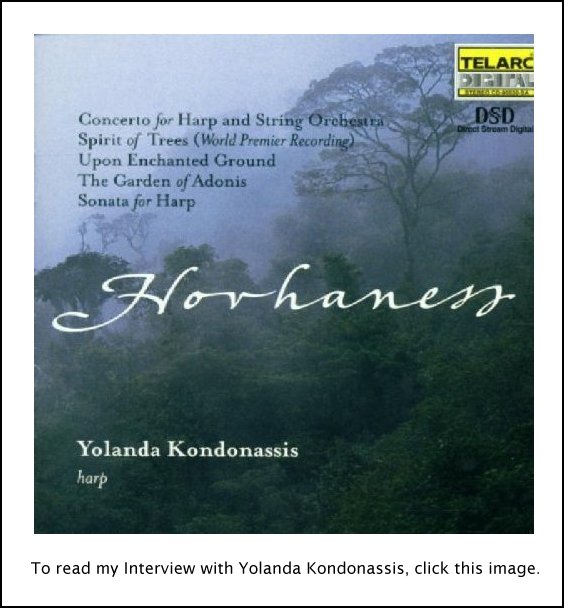 BD: But, you approve, then, of having electronics to make it terrifying.
BD: But, you approve, then, of having electronics to make it terrifying.
AH: Yes, especially in a movie. They exaggerated Mozart’s character, but still they got something out of him. His character was tremendous. He had tremendous vitality. I think it did something good. It was exciting.
BD: Are there any Mozarts living today?
AH: I don’t know. I don’t think we have the kind of civilization in which a Mozart could exist.
BD: Really? Why?
AH: I think he’d be destroyed immediately. He was too much for then. He was kind of an angelic figure that could only exist in certain civilizations. He belongs as a world master, but not living in the flesh.
BD: When you say he would’ve been destroyed, what would destroy him — the business of today, or the politics?
AH: Business, politics, and the lack of idealism in orchestras and in music. People were simple then, and they could be moved. They could really do things. Even in Wagner’s time, for instance, to make his music a success the orchestras devoted themselves to it. They gave their services freely. When they had Don Giovanni here in Seattle, the orchestra was on strike! I was so angry because they shouldn’t be on strike for Mozart. They had to use two pianos. They played very well, except they didn’t finish the overture. There’s some wonderful counterpoint in the overture, some terrifying counterpoint. I wish I could get another pianist who can read well, and I’d illustrate it. I want to play four hands. I don’t have hands enough to play that counterpoint. You have to play it in the four-hand arrangement. It’s marvelous. There’s a regular two-hand arrangement, but it doesn’t work.
BD: It seems that the art of playing piano four-hands is gone.
AH: I know. It’s very disappointing. I did it all the time when I was a kid, and I had pupils who’d do it. I’d teach them, and we’d play Mozart symphonies and Beethoven symphonies. Schubert wrote much for four hands. Some of his greatest music is four-hand music. I lived in Switzerland near where Wagner did, and I know those marvelous mountains. Every time I looked at them, I knew that was Valhalla to him. That’s where he got the idea, his whole inspiration for The Ring. It may have started a little before, but he didn’t work on it until he was in Switzerland. Virgil Thomson told me at one concert where we were on the same program, “You’ve been living in a queer place lately, haven’t you?” I said, “Where? Japan?” He said, “No, no,” and then I said, “Lucerne, Switzerland.” He said. “Yes. That’s a queer place. Everybody used to live there, but nobody does now!” I said, “I wish they didn’t because I finally quit because too many people live there.” [Laughter] But it’s a very beautiful place, and Wagner got a great deal of inspiration. All those storms, those tremendous storms, come from Switzerland, not Germany. I love those storms, and Wagner did too. His intention was to make Bayreuth into Lake Lucerne, but the storms are too severe, so he couldn’t. His idea was to have everybody sitting on the shore, and have the stage on the water, on the barge. He was going to put the real mountains behind. They’re marvelous mountains there. I’ve been in storms there. I used to go and walk. I could actually grab from one tree, and then run to the next one between the gusts of wind, because you can’t stand up on it. They couldn’t build a barge that could withstand the storm, so he had to give that up. But he was a mountain climber, and he loved nature. He used to go out every afternoon into the forest with his two dogs, and spend some time there, and then go to a restaurant I knew in Lucerne.
* * * * *
BD: You say that times were simpler back when Mozart wrote, and he wrote for his audience. Do you write for the audience of today?
AH: No. I write for my imaginary audience.
BD: Is there ever going to be an audience that will completely appreciate the music of Alan Hovhaness?
AH: Oh, yes. They do, when it’s conducted well. I’ve seen it. I’ve lived to see it. A fortune teller told me I would live long enough to see the beginning of it, and I have.
BD: That pleases you, of course?
AH: It pleases me very much. I wish it was recorded, because nobody knows except that particular town.
BD: If there’s a tape, would you try and get that published as a recording?
AH: I’d like to, but the union doesn’t allow it, naturally. You have to come up with a tremendous amount of money, which I don’t have.
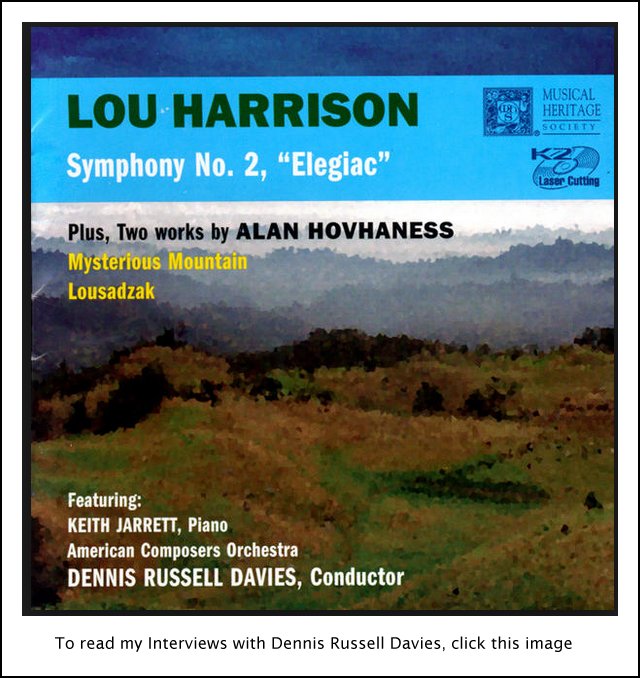 BD: Are you going to be happy when your music is listened to a hundred years from now, and two hundred years from now?
BD: Are you going to be happy when your music is listened to a hundred years from now, and two hundred years from now?
AH: I shouldn’t be around by then. I should be doing something else. [Chuckles]
BD: But would that please you?
AH: It would please me, yes, it would very much. The thing that makes composers very angry with military people is that we don’t want the world destroyed, because our whole life is in the future. That’s what Lou Harrison said. I’m quoting him in that way. He said, “We’re very angry at the atomic bomb, because the only thing a composer really can enjoy after he’s dead, is the future. Nothing is really satisfactory during his lifetime.” Poor Mozart, I don’t think he even knew what he’d written. It was discovered mostly after he died. He wrote so fast and for so many people, and he was so kind. If anybody came to town and needed a concerto, he’d write it for them without charge.
BD: Yet some of them are masterpieces.
AH: They are!
BD: Are any of your works masterpieces?
AH: Probably I’m the only one who thinks so, but I’ve got to be, or I won’t finish them. But my idea of a masterpiece is very different from other composers’.
BD: What is your idea of a masterpiece?
AH: It’s got to come up to... it’s got to have... I can’t put it in words. It’s got to have something which is worth listening to many times. It’s got to have form, it’s got to have good melody. It doesn’t need to have harmony. That’s not so important. Vincent d’Indy, a pupil of César Franck, and a fine composer in his own right, said, “A good composer has got to be able to write a single line melody, without any harmony.”
BD: Are you proud of your single lines?
AH: I don’t know. I have to look them over again and see. I want to be proud of them. Music is a disease with me, it’s a sickness, so I don’t know whether I should be proud of it or not. I have to write and I have to put down what I hear in my head.
BD: So you couldn’t be happy doing anything else — not an accountant or driving a truck or a taxicab?
AH: No, I wouldn’t be happy doing it. My wife does the driving. I used to drive, years ago, but I lost my nerve.
BD: But you haven’t lost your nerve for life.
AH: No, no.
BD: Has life lost its nerve for your music?
AH: I’ve never thought of that. I don’t know. But I do love my music, and I enjoy writing it.
BD: Are there any pieces which you would say, “These are my best works”?
AH: I’m really too close to it. A critic once asked Sibelius why some of his music was so original and some wasn’t so good, and he replied, “You know, I love them all. I love all my music. But I know you critics, naturally, will know what’s better, and what isn’t.”
BD: Are the critics right?
AH: Sometimes, and many times not. But sometimes they are. Some critics are right.
BD: What’s the role of a critic? What’s the function of a critic?
AH: He should be an educator, too. He’s between the creator and the public. He should take his job very seriously. A great critic is a great critic. We had some great critics. They made big mistakes, but still, they appreciated some things, and they educated people. They stimulated people to want to hear things. The trouble is that we have critics today who aren’t really critics. They’re baseball reviewers or something like that, and suddenly they get a job in the music section because there’s nobody else who knows anything. They jump in, and...
BD: ...just go to a concert and write about it!
AH: [Laughter] I don’t get papers anyway, so I don’t know what they say, and I don’t care less.
BD: So you never read reviews of your pieces?
AH: Some people send them to me. I remember when I first was beginning to be performed, people always sent me reviews, and they were always terrible, very much against me. I wondered why they had to send them to me because I didn’t need that. Both critics and composers need to be more careful about what they say, and watch out for dangerous things that may damage music. But I don’t have time to read, really, because I use my eyes all I can. Writing a score is quite a strain on the eyes.
BD: You write all of the parts, and everything? You don’t leave anything to the copyist?
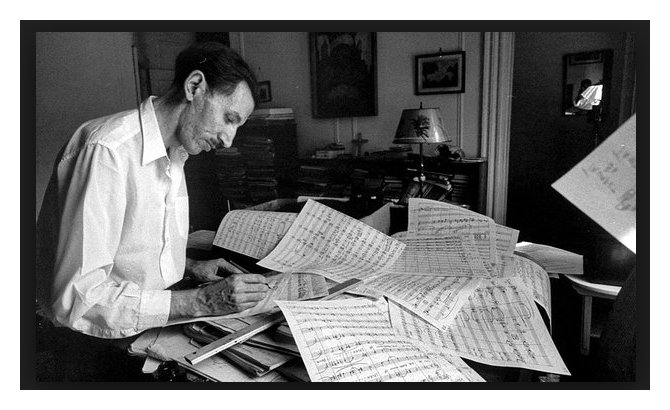 AH: I have to put everything in the score clearly, and then the copyist takes each line by itself, and copies it. I often copy my own parts, too. If it’s just string orchestra, I often copy my own. If it’s for full orchestra, they don’t give me time. Usually they don’t give me time, hardly, to write the music! [Laughter] So I have to have somebody else, immediately, who will devote himself to it, and that’s part of the commission. You’ve got to pay the copyist, but this way I can help composers, because many composers are good copyists. They should be, anyway. At least they’ve got to be good copyists. If they aren’t, they can never succeed as a composer.
AH: I have to put everything in the score clearly, and then the copyist takes each line by itself, and copies it. I often copy my own parts, too. If it’s just string orchestra, I often copy my own. If it’s for full orchestra, they don’t give me time. Usually they don’t give me time, hardly, to write the music! [Laughter] So I have to have somebody else, immediately, who will devote himself to it, and that’s part of the commission. You’ve got to pay the copyist, but this way I can help composers, because many composers are good copyists. They should be, anyway. At least they’ve got to be good copyists. If they aren’t, they can never succeed as a composer.
BD: Should we get all our budding composers to come and help you copy parts?
AH: Not necessarily, no, but you have to know the whole trade. You have to know everything about the orchestra, everything about every instrument. You should play several instruments, if possible. You have to know your job. That’s one trouble with education now. So many people are being taught to be composers by people who don’t even know themselves. When I taught, I made them bring their instruments. Whatever instrument you play, bring it to the class and we’ll write for you. So my pupils had to write for them immediately, and then I let them criticize each other. I’d write one piece on the blackboard to wake myself up in the morning because I couldn’t talk when I first went. I’d been composing all night, and then I’d sleep for a half hour, and then go and teach. So I would write a piece for the instruments on the blackboard, and by the time I’d finish a short piece, then I could talk. The others would copy that as an example, and then they’d write their own. I felt that we should always hear what we’re doing, immediately, and we should know how to write for instruments. Whoever plays the instrument should tell us if this is unplayable, or is not suitable.
BD: Is this one of the problems with opera composers, that they don’t understand the voice?
AH: I think most good opera composers do understand the voice. Mozart wrote some impossibly difficult things. They go up to high G and F, way above the staff, but he had singers who asked him to do it. He was writing for real people who were singing, and could do it.
BD: But composers today — just like they don’t understand all the instruments, do they not understand the voice?
AH: If they don’t understand the instruments, I’m sure they don’t understand the voice, either. They really should be very well educated. Because there are so many composers, what are you going to do with us all? [Laughter]
BD: Is there any kind of camaraderie, or fraternity among composers, or does each one work individually?
AH: There’s an awful lot of it. I think there’s too much of it. I’m not one for going to the MacDowell Colony, or any of those places where the composers go. I want to be friendly. I like the composers we have here, and we get along fine. But if we see other composers every day of our life, I don’t want to go to a meal and talk music. I don’t want to either influence or be influenced by other composers. You need to find out what the truth is within oneself, because we’re all tiny universes related to the great universe.
BD: How much do you keep up with things that are happening these days, and in other composers even if you don’t see them? Do you keep up with the newest trends and ideas?
AH: I used to, but actually I went in a different direction, so I didn’t do too much of that.
BD: What advice can you give to a young composer?
AH: The thing is that too many composers have to earn a living. That’s the difficulty. If they find some other job that they can do that doesn’t take all their time and energy, then that’s fine... unless you’re big businessmen like Rodgers and Hammerstein, or if you have someone like Robert Russell Bennett, who was an expert arranger to do everything for you. He was very, very skillful, and so was Ferde Grofé for Gershwin. If you have people like that who are willing to do it for money, then it’s all right. You can be a composer. That’s not my idea, but I’ve done that kind of work for people, too. I’ve been an arranger.
* * * * *
BD: Let me ask you about one of your very popular pieces, And God Created Great Whales [for Orchestra and pre-recorded sounds of Humpback Whales, Op 221, #1 (1969)]. How did you come to do that?
AH: That was a commission from the New York Philharmonic. They didn’t have money that time, but they copied the parts. So the copyists got the commission. [Laughter] But they were in a hurry, and the scientists who made the recordings gave me a whole bunch of tapes. It was for Kostelanetz’s Promenade Concerts. He was quite a champion of mine. He really was very helpful. He was a nice person, and he’d always send me a telegram or something about the success he had here and there with my music. He was always encouraging, and bringing things my way. So that’s how it worked out, through Dr. Payne and the scientists, and Kostelanetz, and the New York Philharmonic, for the Promenade Concerts. I had a very strong idea and I showed that to Kostelanetz, and he said, “But that idea is too Oriental. The whales don’t sing Oriental music.” But they do. That’s the whole thing, they really do! So I took a theme from an early opera of mine and used that. It’s a little pentatonic theme, and that was okay.
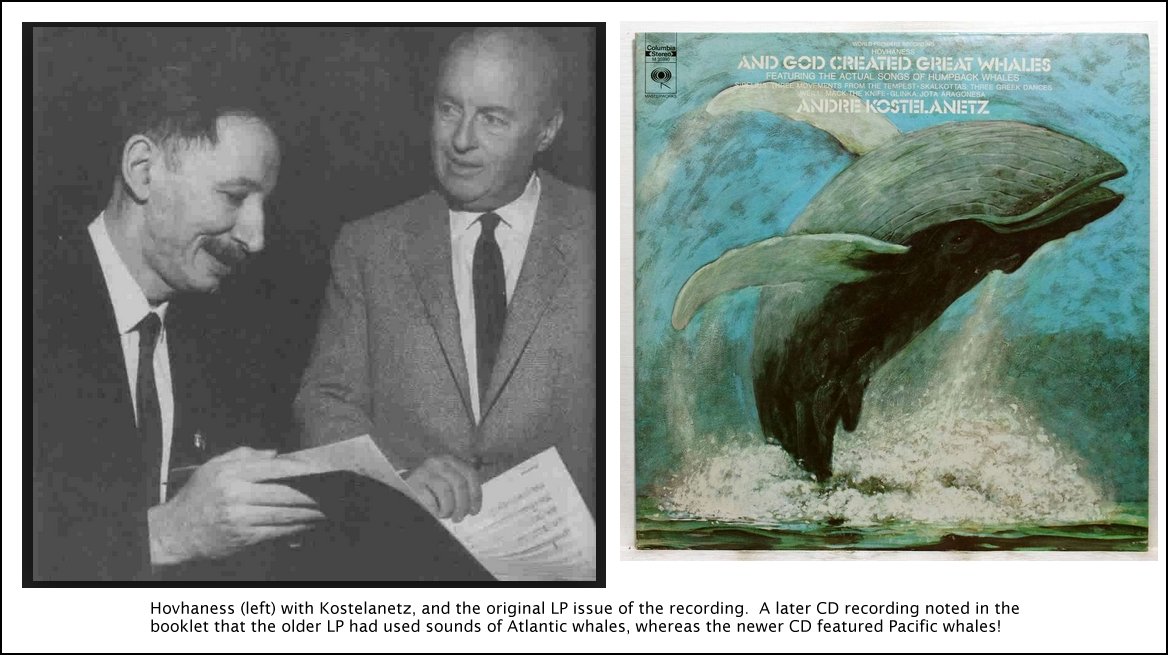
BD: Is that piece at all too popular?
AH: I don’t want to hear it again myself, but now I’ve got to. I’m going to make a choral addition to it for a performance in Vancouver, BC. I’ll do what I can to make something interesting for them. I get lots of commissions for writing for voices, and for choruses, and choirs, church music. To make something nice for the chorus, how can you have the orchestra going in the way it was written, and complete in itself? There’s not much chance. So I squeeze what I can in between, when everything isn’t going on. I decided that I’ll have to let the chorus start the thing off with a little cue for the trombones so they don’t have to copy the parts, just a little thing for two trombones to give the pitch, and then the chorus can go and do something a cappella for a little while before it begins. That will make it worthwhile for the chorus, because I can’t stand writing something that’s not really vocally splendid. [Chuckles] They should have fun singing it.
BD: Should all musicians have fun performing whatever they’re performing?
AH: I think so. They develop that attitude, of course. They get to hate music, and I don’t quite understand why. Of course, if you make a routine of it in the orchestra, it gets to be that way, perhaps, but I can never feel that way.
BD: It’s fascinating probing into the creative mind. I’ve had the privilege of talking with many composers, and it’s very different than speaking with an interpreter. The composers shed a different kind of light. Even if some of the ideas are similar, it’s a different kind of light, and a different viewpoint from what the interpreter will say.
AH: Of course, the interpreter has to have a marvelous technique. They have to work very hard. They have their similarity because they can become inspired by a composition and do something new with it, even something that the composer hadn’t imagined, but it’s something that’s in it. So the composer lives through it. I remember de Pachmann [Ukrainian-born Vladimir de Pachmann (1848-1933)], the great pianist. He was like a madman. When I was a kid, he was a famous pianist. Probably people don’t know much about him now. I don’t know whether he made recordings. He was a great Chopin player, but I remember when I first saw him, he played the Beethoven Pathétique Sonata. He started [Hovhaness hums the first six notes, then pauses]. Relaxation, you see, and then he played the next phrase... [hums the next six-note phrase and waves his hands around in the air]. Then the audience began to laugh, of course. I thought at first I was seeing things, but then I realized that everybody else had seen it, too. Later, before playing Chopin, he would say, “God help me to play,” or “Chopin, please help me to play this work just right, beautifully, the way it should be.” He talked to the audience all the way through, and he’d repeat certain passages! At the end of a Mendelssohn Caprice, he’d say, “Nice staccato!” [Laughter]
BD: Sounds like kind of a nut, actually.
AH: Yes, he was very nutty, but he was a great pianist, except the critics did say that he murdered Beethoven and sent him to hell. [Laughter]
* * * * *
BD: Getting back to recordings just a little bit, I’ve often heard from performers that recordings are too perfect. People listen to them in their house over and over again, then they come to a performance, and it isn’t quite as perfect as the recording. There’s a horn crack, or a reed breaks in the woodwinds, or something, and the people are gasping as if in shock. Is the public expecting too much now because of the recording?
AH: That may be true, yes, but in some respects the tempos they’re taking in classical music are too fast. They want to show off so much, and you have to compete with the next, or the other recordings, and if it’s not as fast as that, it’s not fast enough. But sometimes they miss the true beauty of the music, which should be a little more leisurely and not quite so fast. Orchestras couldn’t probably play that fast in Mozart’s time. When he was a student, I know Sibelius went to a town where they said Mozart had conducted the Figaro overture. He said that he couldn’t get them to play fast enough. He wanted that to go just like fire. Of course, that’s obviously the way, but I think now, probably, they play it even faster than he wanted. [Laughs] But as far as recordings are concerned, they have to be pretty perfect or nobody will sell them. I don’t mind certain crack-ups and things in the orchestra, because that’s part of life. There may be inspired moments, too. That’s part of life. I don’t mind that, but the public, perhaps, is too snobbish about it. They think they know it all because they hear a great record. If they live in a town where they can’t get all the players, they may have some semiprofessionals and some amateurs, but it’s much better to make music, whatever you have, and let it be. It’s good for the people who are playing to play the music. There’s nothing more exciting than having house music, for instance. I used to invite a terrible string quartet — as far as their ability was concerned — and we’d spend an evening together and play all kinds of music, with some things for just string quartet, and I’d play piano quintets.
BD: Then let me ask the big question. Is music art, or is music entertainment?
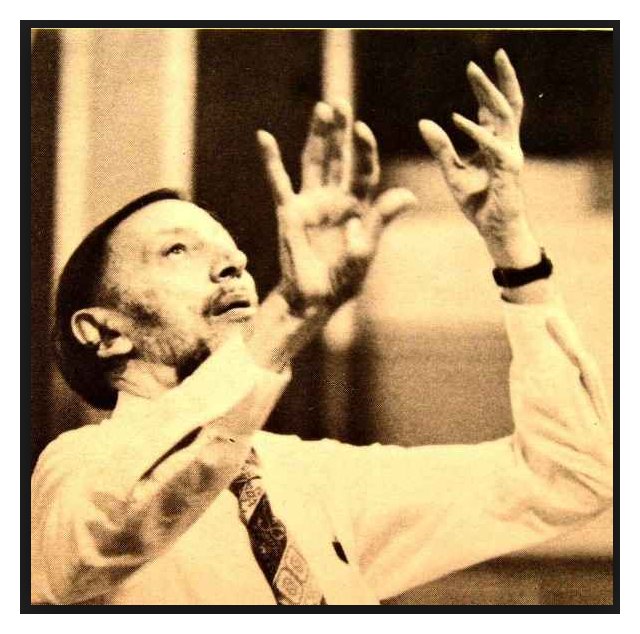 AH: Delibes said music has to be an entertainment. He was a ballet composer, but he was a good one. He influenced Tchaikovsky. I think that music should be partly an entertainment, and partly something, as Handel said, to make you better. After a performance of Messiah, the King said, “Your music entertained me very much.” And Handel replied, sternly, “Your Majesty, it’s not to entertain you, but to make you better.” [Laughter]
AH: Delibes said music has to be an entertainment. He was a ballet composer, but he was a good one. He influenced Tchaikovsky. I think that music should be partly an entertainment, and partly something, as Handel said, to make you better. After a performance of Messiah, the King said, “Your music entertained me very much.” And Handel replied, sternly, “Your Majesty, it’s not to entertain you, but to make you better.” [Laughter]
BD: Does your music make the world better?
AH: I don’t know. The gods who inspired me hope to. There’d be no use in wasting so much time if it didn’t do something. I don’t want to go to a concert unless I’m terribly inspired. I can read the scores. I have them here. I can think of the music, and performances I’ve heard, and I can listen to the orchestra in my mind.
BD: Yours is probably a better orchestra, and it will make fewer mistakes.
AH: That’s true, yes. [Laughter] But I do love to hear a good orchestra actually play. That’s a thrill.
BD: Are you optimistic about the future of music?
AH: I wish I could be. I don’t know. I really don’t know. I pray for the future of music, that’s all. I ask the gods to help us. [Pauses a moment] It’s always very dangerous because it’s too commercialized and too expensive. We can’t really do what we want to do. As we spend more money on war and less on civilization, we get to a point where nobody cares any more.
BD: That’s the downfall of society?
AH: Oh, it is, I think. There’s nothing worth living for, then.
BD: Is there any way to stop it?
AH: I don’t know.
BD: I guess I’m asking the riddle of life.
AH: I don’t want to be like these religious preachers. Of course I don’t feel that way, but I pray that it may stop. I work as though it was never going to end, and that there was nothing wrong. One should work up until doom, as though nothing was wrong. One has to do one’s thing, just as though civilization continues. I’m sure the same thing happened with the fall of Rome. There was no civilization or anything we knew about. Of course, there was a great civilization going on in China at that time, with some of the greatest music ever written. But as far as Europe was concerned, which was their world, there was no civilization anymore, for a long time. There were a few monks who couldn’t even read Latin anymore. They wrote incorrect Latin. But then came the Renaissance.
BD: Is this what you’re hoping for now — a new Renaissance?
AH: I always hope for it. We have to work for it, and we have to be willing to sacrifice for it, and also do what seems impossible. [Pause] I don’t know. I’ve seen some very talented composers who just gave up because they felt the world was so corrupt there was no use. I’m sorry they did, because they could’ve done fine work. I’m sure in all fields it’s that way, too.
BD: Thank you for being a composer.
AH: [Chuckles] I can’t help it. As I said, I’ll do the best I can. I always feel about writing music that if it does something for one person, it’s worth it.
©1985 Bruce Duffie
This interview was held at the composer’s home in Seattle Washington, on August 1, 1985. Portions were used on WNIB in 1986, 1987, 1991, and 1996. A copy of the unedited audio was placed in the Oral History of American Music archive at Yale University. This transcript was made and first posted on this site in May, 2005. It was then linked to New Music Connoisseur Magazine.
My thanks to David Badagnani for his help in preparing this interview for presentation.
For more information about Alan Hovhaness, visit the internet’s Main Website devoted to him. Though it no longer exists, another site might still be available at an archive here.
To see a full list (with links) of my interviews which have been transcribed and posted on this website, click here. To read my thoughts on editing these interviews for print, as well as a few other interesting observations, click here.
Award - winning broadcaster Bruce Duffie was with WNIB, Classical 97 in Chicago from 1975 until its final moment as a classical station in February of 2001. His interviews have also appeared in various magazines and journals since 1980, and he now continues his broadcast series on WNUR-FM, as well as on Contemporary Classical Internet Radio.
You are invited to visit his website for more information about his work, including selected transcripts of other interviews, plus a full list of his guests. He would also like to call your attention to the photos and information about his grandfather, who was a pioneer in the automotive field more than a century ago. You may also send him E-Mail with comments, questions and suggestions.
